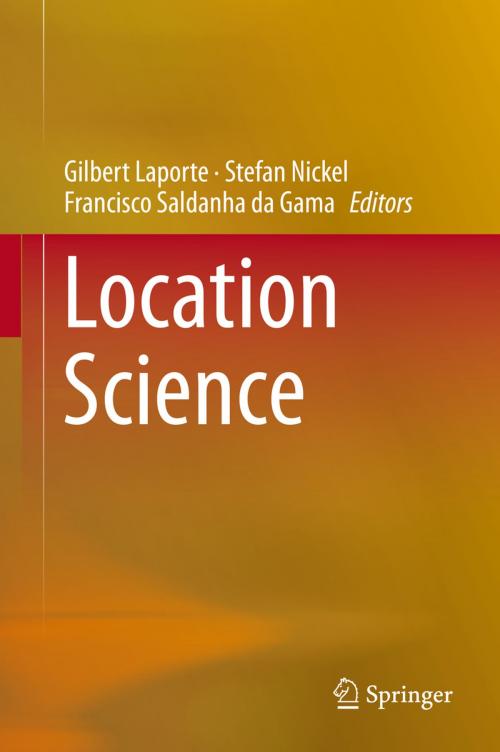Location Science
Business & Finance, Management & Leadership, Operations Research, Nonfiction, Science & Nature, Science, Earth Sciences, Geography| Author: | ISBN: | 9783319131115 | |
| Publisher: | Springer International Publishing | Publication: | February 25, 2015 |
| Imprint: | Springer | Language: | English |
| Author: | |
| ISBN: | 9783319131115 |
| Publisher: | Springer International Publishing |
| Publication: | February 25, 2015 |
| Imprint: | Springer |
| Language: | English |
This comprehensive and clearly structured book presents essential information on modern Location Science. The book is divided into three parts: basic concepts, advanced concepts and applications. Written by the most respected specialists in the field and thoroughly reviewed by the editors, it first lays out the fundamental problems in Location Science and provides the reader with basic background information on location theory. Part II covers advanced models and concepts, broadening and expanding on the content presented in Part I. It provides the reader with important tools to help them understand and solve real-world location problems. Part III is dedicated to linking Location Science with other areas like GIS, telecommunications, healthcare, rapid transit networks, districting problems and disaster events, presenting a wide range of applications. This part enables the reader to understand the role of facility location in such areas, as well as to learn how to handle realistic location problems.
The book is intended for researchers working on theory and applications involving location problems and models. It is also suitable as a textbook for graduate courses on facility location.
This comprehensive and clearly structured book presents essential information on modern Location Science. The book is divided into three parts: basic concepts, advanced concepts and applications. Written by the most respected specialists in the field and thoroughly reviewed by the editors, it first lays out the fundamental problems in Location Science and provides the reader with basic background information on location theory. Part II covers advanced models and concepts, broadening and expanding on the content presented in Part I. It provides the reader with important tools to help them understand and solve real-world location problems. Part III is dedicated to linking Location Science with other areas like GIS, telecommunications, healthcare, rapid transit networks, districting problems and disaster events, presenting a wide range of applications. This part enables the reader to understand the role of facility location in such areas, as well as to learn how to handle realistic location problems.
The book is intended for researchers working on theory and applications involving location problems and models. It is also suitable as a textbook for graduate courses on facility location.















